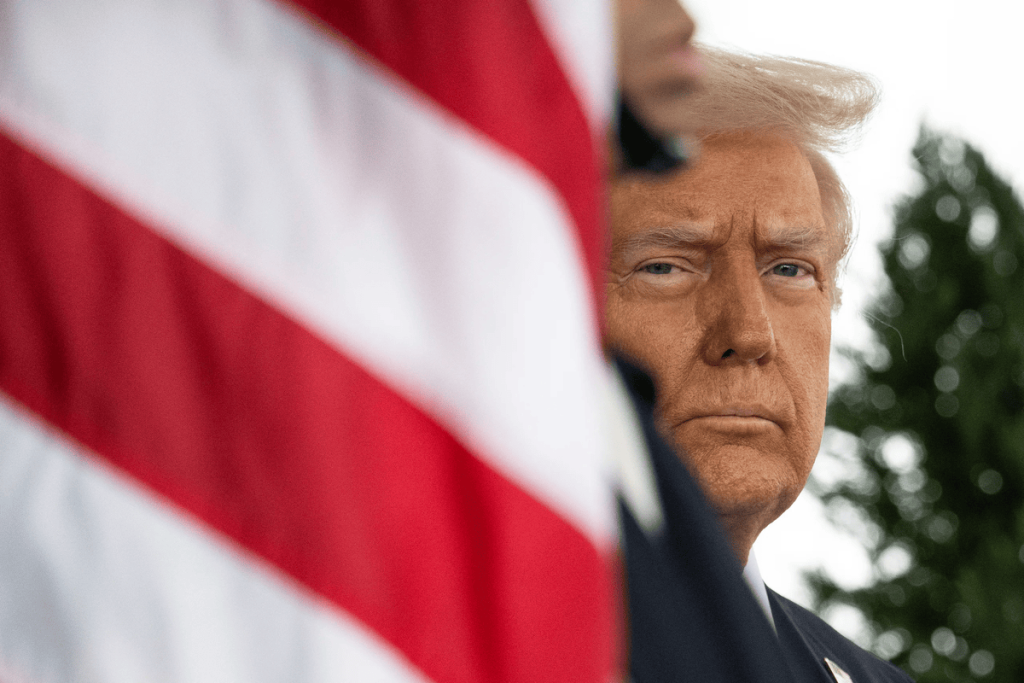President Donald Trump has once again sparked controversy by hinting at the possibility of serving beyond his current term. Speaking with NBC News from Mar‐a‐Lago and later on Air Force One, Trump made clear that when asked of third term for Trump, his answer was far from dismissive. “I’m not joking,” he insisted, sparking fresh debates over the constitutional limits on presidential service and what his hints could portend for the future of the White House.
Trump Teases a Third Term
During a recent phone interview with NBC News, Trump explained that while he is focused on his current administration, he is open to the idea of returning to the Oval Office. “A lot of people want me to do it,” Trump said, adding that he has even been asked if he could somehow find a way to run again. His statement “I’m not joking” about pursuing another term has resonated strongly among his supporters, who view it as a challenge to the longstanding political tradition that presidents serve no more than two elected terms.
Trump alluded to the possibility of exploring “methods” to bypass the constitutional two-term limit. One widely discussed scenario involves Vice President JD Vance running for the presidency, only to step aside immediately so that Trump could reclaim the top office. While the president did not elaborate further on what these “methods” might be, his comments have reignited a national debate over whether Trump could or should try to extend his time in power.
So Can Trump Run For A Third Term?
The 22nd Amendment, ratified in 1951 after Franklin D. Roosevelt’s unprecedented four-term presidency, explicitly prohibits any individual from being elected president more than twice. Despite this clear language, Trump’s remarks have fueled speculation about potential legal maneuvers. Some of his allies, including former strategist Steve Bannon and Congressman Andy Ogles, have publicly floated the idea of amending the Constitution or discovering an alternative “loophole” that could allow a third term for Trump.

Legal experts, however, are quick to point out that any attempt to alter or circumvent the 22nd Amendment would be a monumental challenge. Amending the Constitution requires a two‐thirds vote in Congress or a constitutional convention called for by two‐thirds of the states—and subsequent ratification by three‐quarters of the states. As one constitutional law professor put it, “There are no credible legal arguments for him to run for a third term” without fundamentally changing the rules that have governed presidential service for decades.
Political Reactions and Expert Analysis
Trump’s third-term musings have ignited a firestorm of reaction from both supporters and critics. Many on the right see his comments as a bold signal of his enduring popularity and willingness to defy norms. “Trump not joking about third term” has become a rallying cry among segments of his base, who admire his defiance of conventional politics.
On the other hand, a growing chorus of political scientists, constitutional scholars, and even some Republicans warn that any attempt to break the two-term tradition would further erode democratic institutions. Critics argue that Trump’s focus on extending his stay in the White House is not only legally dubious but also poses a significant threat to the balance of power in the United States government. As one expert noted, “It’s one thing to inspire through policy; it’s another to try to rewrite the rules of our democracy.”
Rep. Daniel Goldman, a vocal critic from New York, stated that if Congressional Republicans truly believe in the Constitution, they must oppose any move that attempts to extend presidential power beyond its intended limits. Such a development, he warned, could set a dangerous precedent for future administrations.
What It Could Means for the White House
For now, Trump’s comments remain in the realm of speculation. The president insists that he is focused on his current term, but the persistent hints about a potential third run have already stirred discussions among legal experts, political strategists, and voters nationwide. The possibility of Trump attempting to serve a third term—whether by amending the Constitution or through some other untested legal theory—has significant implications for the future of the White House and American democracy.
If the idea were ever to gain traction, it would trigger a complex and contentious legal battle, further polarizing an already divided electorate. Moreover, the prospect of a third term for Trump would challenge long-standing norms and could redefine the limits of presidential power, with reverberations for decades to come.
Can We Expect A Third Term for Trump?
While Trump’s latest remarks have once again thrust the question “can Trump run for a third term?” into the spotlight, the constitutional barriers remain formidable. His declaration of being “not joking” about the possibility underscores his penchant for provocative statements. However, as the debate continues, the legal and political hurdles to a third term for Trump seem insurmountable under current constitutional rules. The White House, however, have no immediate comment when reached out about a third terms for Trump.


